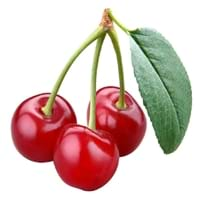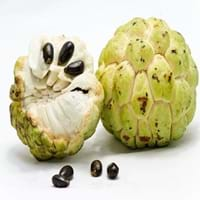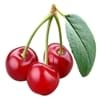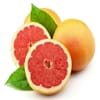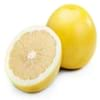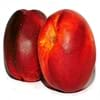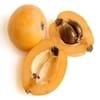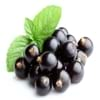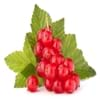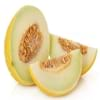Health Benefits
Arthritis prevention, Cancer prevention, Gout treatment, Regulation of heart rate, Treatment of osteoarthritis
Cancer prevention, Heart care, Regulation of heart rate
General Benefits
Anti oxidant properties, Anti-inflammatory properties, Controls blood pressure, Cures headache, Digestive aid
Anti oxidant properties, Anti-inflammatory properties, Boosts immune system, Controls blood pressure, Digestive aid, Strengthens bones
Skin Benefits
Anti-aging benefits, Brightens and lightens complexion, Skin rejuvenation, Treatment of dark spots
Reduces wrinkles, Skin rejuvenation
Hair Benefits
Acts as moisturizer, Protects hair, Regulates hair growth, Rejuvenates scalp
Promotes longer and healthier hair, Treatment of dandruff, Treatment of Lice
Allergy Symptoms
Anaphylaxis, Breathing difficulty, Fainting, Itching, Nasal congestion, Nausea, Swelling of mouth, tongue or lips, Tingling sensation in mouth, Vomiting, Wheezing
Anaphylaxis, Itching, Skin rash, Swelling of face
Side Effects
Abdominal cramps, Allergic reaction, Bloating, Intestinal gas
Allergic reaction, Possibly unsafe during pregnancy
Best Time to Eat
Best if taken as a breakfast (or empty stomach), As a snack in the late afternoon, Don't eat after meal, Morning time (before lunch)
As a snack in the late afternoon, Don't consume at night and before bed, Morning time (before lunch)
Vitamin A (Retinol)
Not Available
Vitamin B5 (Pantothenic Acid)
Vitamin C (Ascorbic Acid)
Vitamin K (Phyllochinone)
Not Available
Calories in Fresh Fruit with Peel
Not Available
Calories in Fresh Fruit without Peel
Not Available
Calories in Frozen Form
Not Available
Calories in Dried Form
Not Available
Calories in Canned Form
Not Available
Calories in Juice
Not Available
Calories in Jam
Not Available
Calories in Pie
Not Available
Season
Summer
Autumn, Spring, Winter
Varieties
Evan, Mesabi, Meteor, Northstar, Montmorency and Mongolian
Andrews, Amarilla, Asca, Baste, Bays, Bayott, Behl, Canaria, Capucha, Deliciosa, Ecuador, El Bumpo, Guayacuyán, Jete, Juniana, Knight, Nata, Popocay, Sander, Smoothey, Tumba, Umbonada, Whaley and White Juliana
Origin
Europe, Western Asia
Ecuador
Soil Type
Sandy
Sandy loam
Climatic Conditions
Cold
Warm
Facts about
- Using 1/4 tablespoon of almond extract with cherries, brings out the real flavor of cherries.
- In earlier times, serving cherry pie with ice cream was prohibited.
- 23 April is National cherry cheese cake day.
- Cherimoya is also called as custard apple or chirimoya.
- The word cherimoya came from the Quechua word,'chirimuya',which means 'cold seeds'.
- The cherimoya is called as 'the tree of ice cream'.
Top Producer
Turkey
Spain
Other Countries
Albania, Armenia, Austria, Azerbaijan, Belarus, Croatia, Denmark, Germany, Hungary, Iran, Italy, Macedonia, Moldova, Poland, Russia, Serbia, Ukraine, United States of America, Uzbekistan
Argentina, Chile, Colombia, Egypt, Italy, Mexico, Peru, South Africa, United States of America
Top Importer
Germany
United States of America
Top Exporter
Poland
Spain
Botanical Name
Prunus cerasus
Annona cherimola
Synonym
Not Available
Not Available
Subkingdom
Tracheobionta
Tracheobionta
Division
Magnoliophyta
Magnoliophyta
Class
Magnoliopsida
Magnoliopsida
Subclass
Rosidae
Magnollidae
Order
Rosales
Magnoliales
Family
Rosaceae
Annonaceae
Species
P. cerasus
A. cherimola
Generic Group
Rose
Not Available
Compare Sour Cherry and Cherimoya
It is important compare Sour Cherry and Cherimoya as both the fruits have a different nutritional value. Their comparison can be done on the basis of their vitamin and mineral content, calories, benefits as well as characteristics, making it easier for us to choose the best fruit for our diet. Their general health benefits are as follows:
Sour Cherry Benefits: anti oxidant properties, anti-inflammatory properties, controls blood pressure, cures headache and digestive aid.
Cherimoya Benefits: anti oxidant properties, anti-inflammatory properties, boosts immune system, controls blood pressure, digestive aid and strengthens bones.
Fruits are also used as a remedy for various hair problems. The hair benefits of Sour Cherry are: acts as moisturizer, protects hair, regulates hair growth and rejuvenates scalp and hair benefits of Cherimoya are: promotes longer and healthier hair, treatment of dandruff and treatment of lice. Some fruits are known to cause allergic reactions. The allergy symptoms of first fruit are: anaphylaxis, breathing difficulty, fainting, itching, nasal congestion, nausea, swelling of mouth, tongue or lips, tingling sensation in mouth, vomiting and wheezing and the symptoms of second fruit are: anaphylaxis, itching, skin rash and swelling of face. Get sorted Sour Cherry vs Cherimoya comparison with the help of fruit comparison tool by fruitvs.com.
